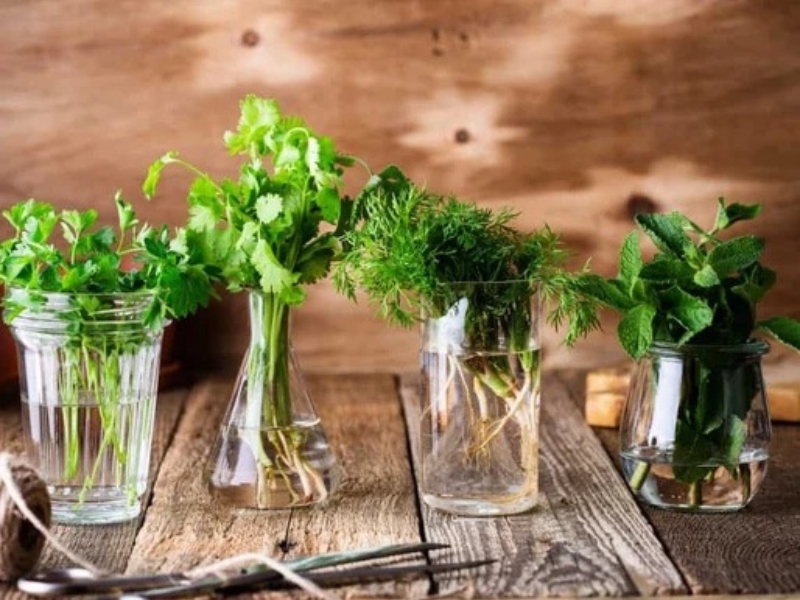What does “Organic” ACTUALLY mean?
Have you ever wondered what the difference is between organic and regular food? Except for the price difference of course, with organic produce being approximately 30% more expensive. Despite this price difference, there has been an 80% increase in organic farming sales since 2004. Why is this the case?
What does “organic” actually mean?
You may have read my blog about why it’s so important to wash your vegetables if you can’t buy certified organic produce. What do I mean by this? Let’s delve into what “organic” really means.
According to Australian Organic Ltd, the term ‘certified organic’ means:
“The farm, product or service, has been independently, third party verified by a certification agency as being organic. This means that every part of the supply chain from the soil on the farm, to production of a product/ingredient or the service provided has been through rigorous audits and testing and adhered to a standard, such as the Australian Certified Organic Standard (ACOS).”
What does this standard involve? Well there are three main areas emphasised in the guidelines:
Ensuring minimal chemical and pesticide use
The guidelines emphasise the importance of reducing chemical and pesticide use. There is a list of substances permitted for use and prohibited also. Section 4.7.1 outlines that the “The aim of organic certification is to minimise residues and to disallow residues to be present that are…used in the production and preparation chain.” Section 6.6.2 (d) outlines that “Synthetic colouring agents, synthetic fragrances/parfums, ethoxylated ingredients, silicones, paraffin and other petroleum or petroleum-derived products are all prohibited.” In addition, Section 6.6.2. (e) states that “where a preservative is required for the safety and/or stability of a product, only preservatives derived from natural sources are to be used.” Products are also not permitted to be of Genetic Engineering (GE) origin, treated with ionising radiation or a product from nanotechnology products.
Maintaining good animal welfare practises
Included in the ACOS are guidelines around the upbringing, spatial allocation and transport of livestock. The guidelines specifically outline that practises should be put in place to minimise the stress of the livestock also.
Promoting sustainability and environmental integrity
Modern, conventional agriculture is not regenerative to the environment. This is the reason why our soils are consistently being depleted of many nutrients, contributing to our current population’s widespread nutrient deficiency problems. Thankfully, certified organic produce must adhere to certain environmental sustainability guidelines. For example, Standard 4.1.1 states that “sufficient organic material shall be returned to the soil by the recycling, regeneration and addition of organic materials and nutrients to increase, or at least maintain, the [soil] content.” Read my blog here to understand why a wide variety of soil microbes and soil regeneration is so important. Standard 4.6.1 states that “Management, protection and enhancement of biodiversity and environmental aspects on organic farming operations shall be a priority of certified operators.” The standards also emphasise the importance of maintaining native bushland areas to enhance the on-farm flora and fauna biodiversity. This protects the Australian environment from potential plant and animal extinctions and maintains the complexity of our ecosystems.
Why you should try and buy organic
More of the good stuff! (Greater nutrient levels)
According to a study named “Organic foods vs Supermarket foods,” Organic foods are higher in minerals such as:
- 63% more calcium
- 73% more iron
- 118% more magnesium
- 178% more molybdenum
- 91% more phosphorus
- 125% more potassium
- 60% more zinc
Click here to read my basic micronutrient guide, explaining how these minerals are beneficial for your health!
There are also higher levels of antioxidants and omega-3 fatty acids (which are anti-inflammatory) in organic produce, including meat and dairy products
Less of the bad stuff! (Reduced toxic build up)
In addition to there being more of the good stuff in organic produce, there is less of the bad stuff. A recent study showed that “More frequent consumption of organic produce was associated with lower DAPs (urinary dialkylphosphate levels)”. In other words, individuals who consumed more organic produce had less chemical residues building up in their bodies.
According to a 2017 study, there is massive evidence to suggest that sub-lethal (aka. ‘safe’) exposure to pesticides is linked to an increased incidence of diseases such as “cancers, Alzheimer, Parkinson, amyotrophic lateral sclerosis, asthma, bronchitis, infertility, birth defects, attention deficit hyperactivity disorder, autism, diabetes, and obesity.”
“Exposure to pesticides is linked to an increased incidence of diseases such as “cancers, Alzheimer, Parkinson, amyotrophic lateral sclerosis, asthma, bronchitis, infertility, birth defects, attention deficit hyperactivity disorder, autism, diabetes, and obesity.”
Supporting animal welfare and environmental sustainability
As outlined above, certified organic farming emphasises the importance of better animal welfare and environmental sustainability. Not only will you be supporting your own health by eating organic, you’re supporting the health and welfare of our planet and animals also!
The Dirty Dozen and Clean Fifteen
If you are struggling to find organic produce for all of your fruit and vegetable needs, the Environmental Working Group has put together a “Dirty Dozen” list, which outlines the most heavily sprayed fruits and vegetables. These are the fruits and vegetables that I would prioritise buying organic! They have also provided a “Clean Fifteen” list, which lists the top 15 fruits and vegetables that are the LEAST contaminated with pesticides. I would highly recommend checking them out!
Where to find organic produce
Your local wholefood coop
Local co-ops purchase locally grown and/or organic foods and related products, for sale to co-operative members and the wider community. They are like your local farmers market, but you don’t have to wait once a month to access great produce!
Local markets
Local markets are often full of organic produce, and what’s more, it’s local! This means less food miles (the transportation of food to you) and supporting local businesses!
Supermarkets and Greengrocers:
Look for the “Australian certified organic” logo below, as they have adhered to the Australian Certified Organic Standard (ACOS). Additionally, any of the logo’s below will be adhering to a similar standard also.









